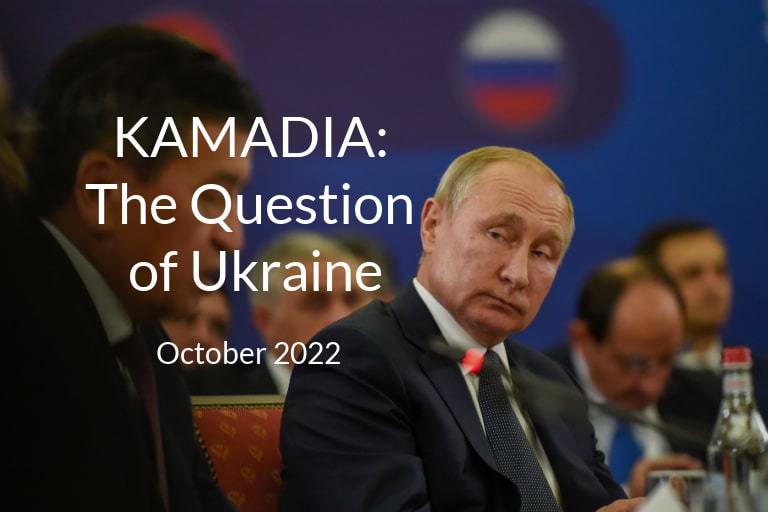By Aly Kamadia, Editor-In-Chief, iDose
Many months after the Russia-Ukraine war has erupted, we see excessive irresponsibility rolling off the tongues of far too many intellectuals.
It has become fashionable among this crowd to oversimplify the Russia-Ukraine conflict into a narrative about a global war between good versus evil, or democracy versus autocracy.
According to these geniuses, the mere pursuit by the United States (US) for any type of diplomacy and negotiations vis-à-vis Russia-Ukraine would constitute nothing short of “appeasement”. This group enjoys delivering sermons to the public about the need for President Putin and Russia to be decisively defeated, while warning that any other outcome would be unacceptable.
This sort of “thinking” is shocking in its irresponsibility, outright stupidity and ironically, utter disregard for human life.
For instance, those obsessing with the argument that the risk of Putin launching nuclear weapons is low seem to have a hard time digesting another reality: the horrific stakes of the situation can barely be fathomed.

It can’t be doubted, at least among those with a functioning brain, that the current conflict has escalated the chances of nuclear confrontation between the US and Russia. And even if the escalated likelihood of Putin deploying nuclear weapons remains low nonetheless, it is appalling to dismiss genuine threats to human civilization (as we know it) by thumping on one’s chest while yelling “appeasement” – a grave insult to anyone who knows a bit of history.
To cite just one example of how high the stakes are, consider Princeton University’s Science and Global Security lab. Recent simulations estimate that if the US and Russia engaged in nuclear exchanges, “more than 90 million people [would be] dead and injured within the first few hours of the conflict.” (For those interested, feel free to watch a relevant video at the end of this piece.)
Given the potential for nuclear conflict, intellectuals declaring that Putin has to be overthrown must stop running away from the discomforting question of who would replace him in the real world, and not in their romantic thought experiments.
After all, it’s hardly the biggest secret that there are high ranking military officials who are condemning Putin for not executing a more ruthless war. Put differently, if Putin was to be replaced, it might be by an individual with more hawkish inclinations.
Is this a desirable goal?

Moreover, what is the likelihood of Russia remaining a functioning country if a coup unfolds, whether successful or unsuccessful in overthrowing Putin?
What are the consequences of the potential power vacuums in such a scenario?
Finally, is it not simply outlandish to write an entire essay arguing that Putin must be defeated, that everyone favoring US diplomatic engagement is guilty of “appeasement”, while failing to dedicate the slightest ink to the urgent question of potential nuclear conflict within the very same essay?
That is precisely what Yale’s Timothy Snyder did in a recent essay published by Foreign Affairs (Council on Foreign Relations). Snyder serves as an excellent example of someone with impressive knowledge that is only trumped by his impressive stupidity when it comes to judgement – at least on this topic.
Thankfully, there are responsible intellectuals who are mindful of the obvious, and realize that the heightened risk of US-Russian nuclear conflict, even if low, merits significant US attempts at diplomacy and negotiations.
American President Joe Biden ought to welcome such thinking. Insofar as he continues pursuing the current path of no diplomacy, no negotiations and regime change in Russia, the US remains guilty of not doing everything in its power to lower the chances of “Armageddon” – a scenario that Biden himself has warned of.
© All Rights Reserved
Aly Kamadia is Editor-In-Chief of iDose. To read selected articles by Kamadia, click here.
For those interested, feel free to view (below) the short though informative simulation put together by the noted Princeton Lab


